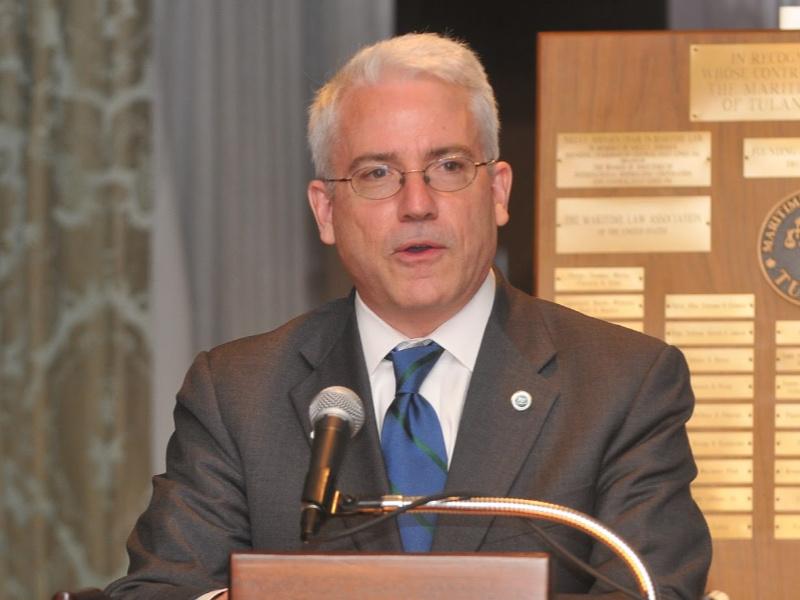Dean Meyer: As lawyers we are called to preserve and defend the rule of law
To the Tulane Law Community:
With most of the nation, I watched yesterday’s attack on the U.S. Capitol with revulsion. The images of a mob storming the seat of our democracy to obstruct lawmakers’ performance of their constitutional duties were shocking. Yet they were also sadly familiar. For me, they recalled another time, nearly 60 years before, when another mob set upon federal marshals and officials seeking to enroll James Meredith at the University of Mississippi, a violent resistance to constitutional principle cynically stoked and incited by the state’s segregationist Governor. In sending in federal troops to put down the rebellion, President Kennedy made clear that the stakes were nothing less than the soul of the nation: “[O]ur Nation is founded on the principle that observance of the law is the eternal safeguard of liberty and defiance of the law is the surest road to tyranny. . . [I]n a government of laws and not of men, no man, however prominent or powerful, and no mob, however unruly or boisterous, is entitled to defy a court of law.”
For today, we can take solace that the principles of our democracy survived a fundamental test, with Congress reconvening amid the broken glass and, with a strong bipartisan majority, ratifying the will of the people expressed through the democratic process and confirmed by the courts. But the peril has not passed and the divisions that fueled yesterday’s violent insurrection remain.
All Americans are called to respond to this crisis by affirming the fundamental principles upon which our country was founded and insisting that political disagreements must be resolved lawfully, through the democratic process and the courts. As lawyers and law students, however, we have a special interest and responsibility to preserve and defend the rule of law. Among the lessons that events of the past 24 hours have underscored, two stand out for me. The first is that the rule of law depends ultimately not on faceless institutions such as courts and legislatures, but on the integrity of the individual human beings who make up those institutions. The second is that the vitality of our democracy depends upon our ability to nurture a fundamental sense of belonging and a shared sense of community even when we disagree.
As we reconvene as a law school community with the start of a new year and a new semester, I hope we will bring a new appreciation for the fragility of the rule of law and a renewed commitment to our roles and shared responsibilities in preserving it.
Best wishes,
David D. Meyer
Dean and Mitchell Franklin Professor of Law
Tulane University Law School

